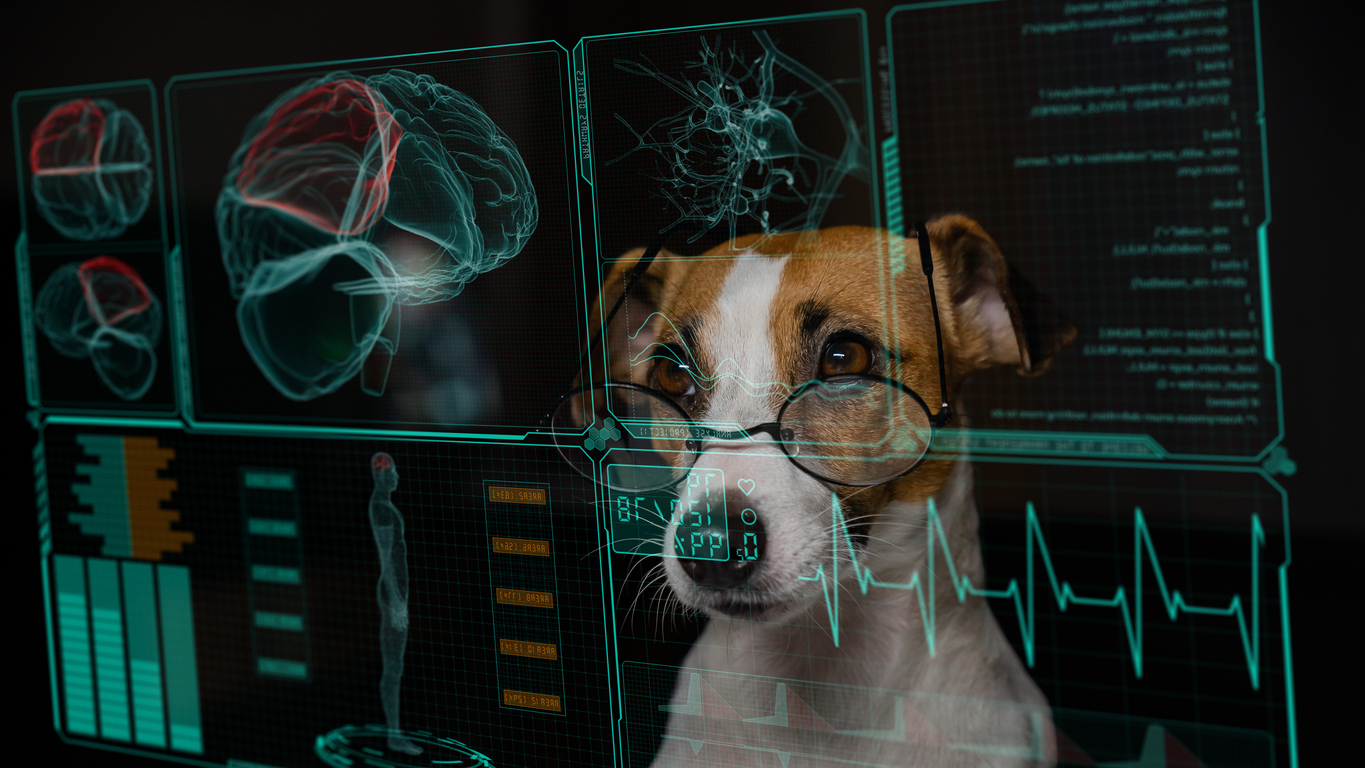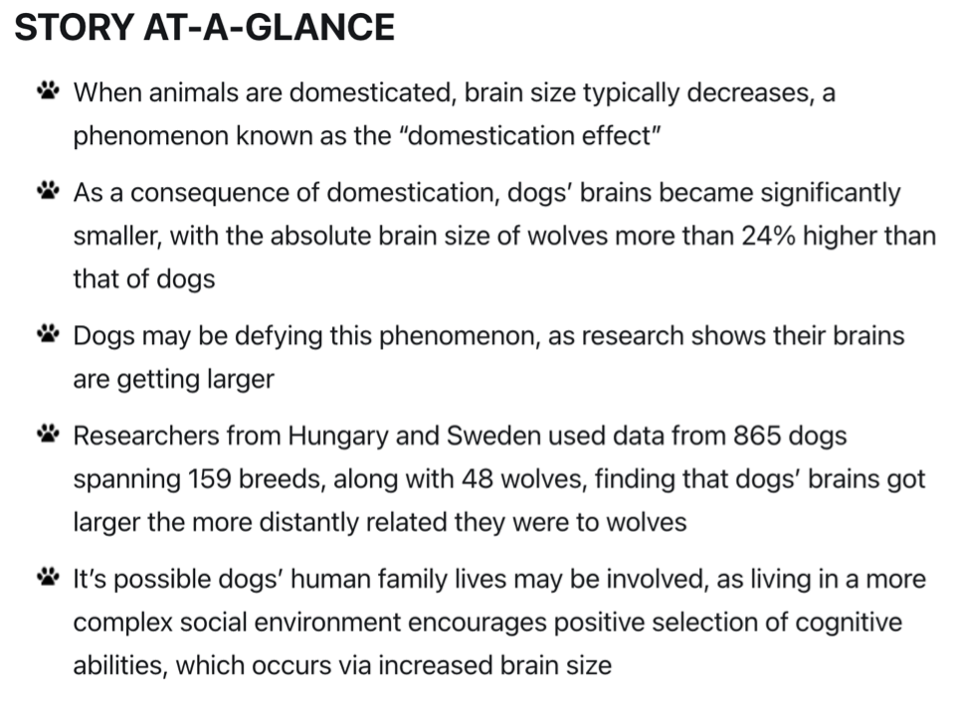Laurie's Blogs.
Oct 2023
Growing a Canine Brain

Another interesting blog crossed my path. This one by Dr. Karen Becker.
https://www.barkandwhiskers.com/2023-10-16-growing-dog-brain/

So, instead of rehashing the blog above, I thought I’d 1) look at the original research, and then 2) See what else I could find!
So, one of the articles used in the blog above is entitled, “Domestication effect of reduced brain size is reverted when mink become feral”.1 I just have to admit that I like the title… and to be honest it makes me giggle. I think of the ‘domestic housewife’, and how all of us women who have moved into careers could be considered ‘feral’! As such, I am content that the transition may have made my brain grow (even if I still enjoy the odd domestic activity now and again!)
Back to the brain growth paper, the lead author is quoted as saying,
"The results show that the breeding of modern dog breeds has been accompanied by an increase in brain size compared to ancient breeds. We couldn't explain this based on the tasks or life history characteristics of the breeds, so we can only speculate about the reasons. Perhaps the more complex social environment, urbanization, and adaptation to more rules and expectations have caused this change, affecting all modern breeds."2
In doing my own search, I discovered an interesting paper that found, inhibitory control and communication factors were highly heritable, while memory and physical reasoning were less heritable.3
Then this next paper which throws it back in the face of the human at the helm: Dog and owner characteristics predict training success. It concluded “…that while dog age, sex and neuter status did not predict success, owner-rated levels of disobedience did predict completion of the program [American Kennel Club Canine Good Citizen training program]. In terms of owner characteristics, owners who scored higher on cognitive measures were more likely to have their dogs complete the program. Finally, dog-owner characteristics such as the time spent training predicted success.”4
All in all a bit of a ‘hodge-podge’ of research articles about dog cognition and learning! Just a fun bit of knowledge intake for your week ahead!
On that note,
Cheers! Laurie
References:
1. https://royalsocietypublishing.org/doi/10.1098/rsos.230463
2. https://phys.org/news/2023-05-brains-modern-dog-larger-ancient.html
3. https://pubmed.ncbi.nlm.nih.gov/32524290/
4. https://pubmed.ncbi.nlm.nih.gov/33423147/


